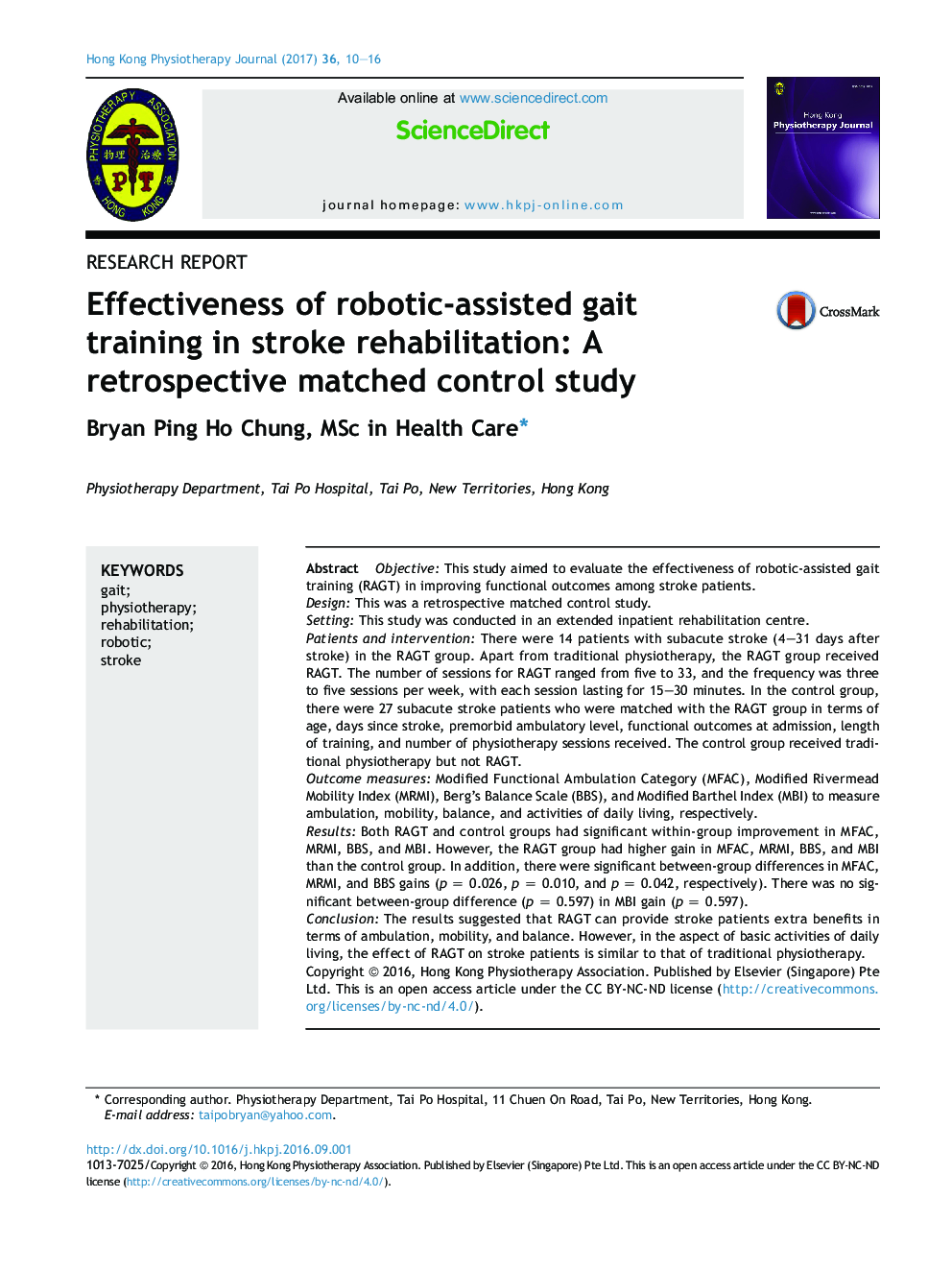| کد مقاله | کد نشریه | سال انتشار | مقاله انگلیسی | نسخه تمام متن |
|---|---|---|---|---|
| 5563845 | 1562975 | 2017 | 7 صفحه PDF | دانلود رایگان |
ObjectiveThis study aimed to evaluate the effectiveness of robotic-assisted gait training (RAGT) in improving functional outcomes among stroke patients.DesignThis was a retrospective matched control study.SettingThis study was conducted in an extended inpatient rehabilitation centre.Patients and interventionThere were 14 patients with subacute stroke (4-31 days after stroke) in the RAGT group. Apart from traditional physiotherapy, the RAGT group received RAGT. The number of sessions for RAGT ranged from five to 33, and the frequency was three to five sessions per week, with each session lasting for 15-30 minutes. In the control group, there were 27 subacute stroke patients who were matched with the RAGT group in terms of age, days since stroke, premorbid ambulatory level, functional outcomes at admission, length of training, and number of physiotherapy sessions received. The control group received traditional physiotherapy but not RAGT.Outcome measuresModified Functional Ambulation Category (MFAC), Modified Rivermead Mobility Index (MRMI), Berg's Balance Scale (BBS), and Modified Barthel Index (MBI) to measure ambulation, mobility, balance, and activities of daily living, respectively.ResultsBoth RAGT and control groups had significant within-group improvement in MFAC, MRMI, BBS, and MBI. However, the RAGT group had higher gain in MFAC, MRMI, BBS, and MBI than the control group. In addition, there were significant between-group differences in MFAC, MRMI, and BBS gains (p = 0.026, p = 0.010, and p = 0.042, respectively). There was no significant between-group difference (p = 0.597) in MBI gain (p = 0.597).ConclusionThe results suggested that RAGT can provide stroke patients extra benefits in terms of ambulation, mobility, and balance. However, in the aspect of basic activities of daily living, the effect of RAGT on stroke patients is similar to that of traditional physiotherapy.
Journal: Hong Kong Physiotherapy Journal - Volume 36, June 2017, Pages 10-16
